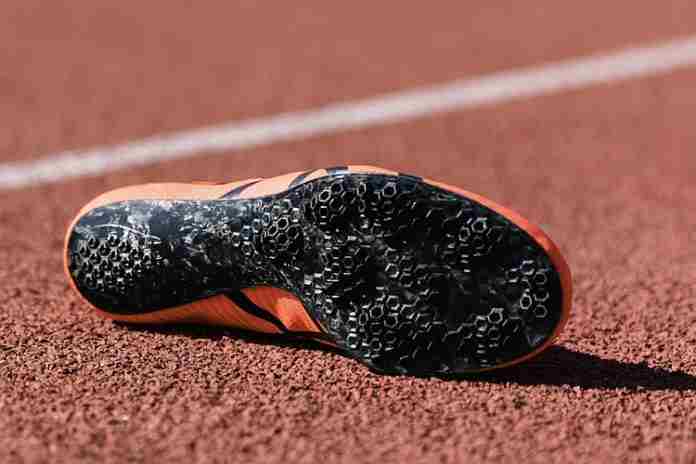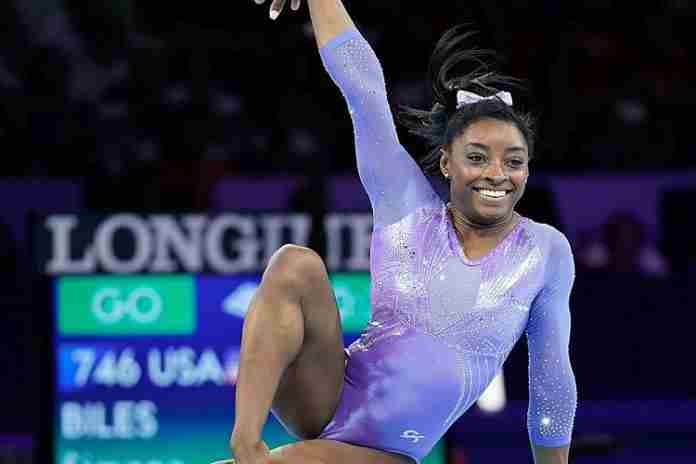(★ Friends: Happy New Year! Delighted to thank our 34 donors toward our bill for server and support costs; we’re now at 81% of our goal. If you would like to join in, please donate here. Your enthusiasm is the motivation for this site. ★)
News, views and noise from the non-stop, worldwide circus of Olympic sport:
● Vox Populi ● Many thanks to the many readers who sent holiday greetings and good wishes for 2021. It will be a momentous year worldwide and especially in sport. Some interesting comments:
● On our no. 10 story of 2020, the passing of Olympic gold medalist Rafer Johnson:
“As an Adapted P.E. teacher in the L.A. City schools, I had the honor of meeting Rafer at the many California Special Olympics events that I coached, mostly prior to my becoming a full time T&F coach in the early 1990s.
“The many testimonials regarding his humanity and humility as a person, was reinforced to me in my encounters with him at the time. An unforgettable experience and as I said, a true honor.
“In summarizing Rafer’s abilities, there are a number of caveats regarding the marks that he made as an athlete:
“In the high jump, aside from using the straddle technique, he had to take off from a dirt approach, rather than a springy all weather surface.
“All running events also were accomplished on dirt surfaces, a fact that has been widely ignored by the likes of T&FN as having significant bearing on records in all events, from the long jump through the 10k.
“The use of non fiberglass poles needs no further explanation.
“RIP the real Greatest of All Time, Mr. Rafer Johnson.”
~ Ron Brumel, Los Angeles, California
● Our no. 5 story was the confirmation of the events for Paris 2024, which includes surfing in Tahiti. @TrackSuperFan Jesse Squire’s tweet about surfing “Stealing entries from legitimate Olympic sports” drew this reaction from long-time (and highly-respected) Olympic observer Alan Abrahamson:
“Jesse – I love t/f too. But you know what a reasonable person would call your observation: ‘Locking the barn after the horse is out.’ Better we figure out different strategies than barking at surfing. Which is gonna be a big hit at the Games.”
and
“If I’m wrong – and if after wave-pool technology spurred by the boom of surfing at the Games hasn’t taken over Middle America – get back to me after surfing rocks it at 2020, 2024, 2028 Games.”
And after track coach Steve Ritchie stated “I’ll need to be convinced,” Abrahamson shot back:
“Well, you’ll have lots of time and opportunity. Lots of surfing coming up at the Games. Start California dreamin’ – it’s not just a sport, it’s a culture and a way of life and endless summer is a real thing that cannot and will not be denied.”
● Games of the XXXII Olympiad: Tokyo 2020 ● The calendar has changed, but the debate over whether the Tokyo Games will be held continues unabated.
International Olympic Committee President Thomas Bach’s message for the new year underscored the determination to hold the Games:
“We can only thank our Japanese partners and friends for their great commitment and their determination, which is absolutely in line with our commitment and our determination to organise these Games in a safe and secure way for all the participants and to make these Olympic Games fit for the post-coronavirus world. We all will live unforgettable Games.”
He also emphasized the need for unity, and for calm:
“[W]hile preparing for Tokyo and Beijing, we all have to look into the further future. And that means: how we can even strengthen the role of sport for a more human-centred and inclusive post-coronavirus world.
“There we have learned one lesson. This one lesson is: we need more solidarity. We need
more solidarity within societies, and we need more solidarity among societies.”
Look for him to come back to this theme when the IOC Athletes’ Commission forwards its recommendations for changes to Rule 50 on allowable protests at the Olympic Games.
¶
In Tokyo, the newest discussion point is the request by several prefectures – including Tokyo – for the declaration of a national state of emergency as the coronavirus inspection rate has spiked upwards.
Tokyo reported 1,337 infections last Thursday (31st), the most yet in an area of 9.27 million; by comparison, Los Angeles County – population 10.04 million – reported 18,404 new infections on 30 December, down from 20,664 the day prior.
A state of emergency would shut down many training facilities and raise again the question of whether the Games can be held. In truth, no decision will come until the end of March at the earliest, remember that the postponement in 2020 was announced on 24 March.
Former IOC marketing chief Michael Payne (GBR) tweeted on Saturday:
“If it comes to it, much easier and better to move to 2022 not 2032.”
Two Games in the same year? Youngsters should be reminded that the Winter and Olympic Games were always held in the same year from 1924 through 1992; the separate cycles began with the 1994 Winter Games in Norway.
● Athletics ● Much has been made of the improvement in shoe technology for distance runners, with records being set in most of the longer races in 2020. But the revolution in design is now in the sprints as well.
Asics introduced a spikeless sprint shoe – the Metasprint – in 2019 and put in on sale in 2020 for ¥39,600 (~$380 U.S., but seen on sale as low as $180) with surprising interest.
Japanese sprinter Yoshihide Kiryu, the country’s first sub-10 sprinter – 9.98 in 2017 – told the Asahi Shimbun he used them at the 2019 IAAF World Championships in Doha and now prefers the shoe to the usual spiked sprint style.
The shoe uses specially-made carbon – of course – fibers that are arranged into honeycomb-shaped cells. The idea:
“Asics officials said spikes often stick obliquely in the ground, thereby requiring the runner to use extra force. Research led the developers to conclude that the propulsion force could be made more efficient if the ground were to be clutched not at ‘spots’ but along ‘lines.’
“An Asics study showed the time to run 100 meters would be 0.048 second faster if the spikes were removed and propulsion increased.
“Protrusions [on the sole are] arranged in a honeycomb structure, or a tight, honeycomb-like pack of hexagonal cells, were conceived as an embodiment of the ‘lines’ along which to grip the ground instead of at the points of the spikes.”
¶
The newest study on the impact of high-performance shoes on distance running compared runners competing in major marathons in 2018 and 2019 – when the first “super shoes” became available – and:
“The men got faster by 1:12, and the women by 3:42. These improvements represented percentage gains of 0.8% and 1.6 percent.”
The research entailed data from 10 years of top-50 results from the major marathons in Boston, Chicago, London and New York from 2010-19:
“The results showed a strong stability of performance through 2018. … The top 50 men in the four marathons had an average time of 2:21:18. The top 50 women had an average time of 2:43:24.
“Then came 2019, and the average top 50 times dropped to 2:18:30 and 2:39:06. This represented a 2 percent improvement for men, and a 2.6 percent improvement for women.”
The researchers concluded that the performance enhancement comes from “(1) curved carbon-fiber plates; (2) a lighter and more responsive midsole material; and (3) thicker midsoles.”
● Biathlon ● Just as the tumult over covered-up doping results appeared to have subsided in biathlon, it flared up again over strange events in a Russian junior competition at the end of 2020.
Andy Brown, writing on the SportsIntegrityInitiative site, reported today (5th) that the Russian Anti-Doping Agency (RUSADA) is investigating the “mass withdrawal” of competitors from an event when it became known that doping-control officers had arrived.
The Izhevsk Rifle races for women was held in Chaykovsky – a town about 800 miles east of Moscow – from 24-27 December and a men’s event was held in Izhevsk itself (about 55 miles west) from 25-28 December. Russian cross-country skier Nikolai Pankratov commented on a Russian skiing Web site that numerous junior women withdrew after the Sprint race and that a day later, many of the men’s junior competitors withdrew.
Reports indicate that of the 69 starters in the women’s Sprint, 55 finished, with 12 withdrawals. In the men’s junior race on 28 December, 88 were entered, but only 21 competed. That these withdrawals are by junior athletes is especially worrying, since that is the first level where doping education and restraint should be taught.
Both RUSADA and the International Biathlon Union are looking into the situation further.
● Ice Hockey ● The IIHF men’s World Junior Championship will be decided today at the Rogers Centre in Edmonton, Canada, with the U.S. and Canada facing off at 9:30 local time.
In Monday’s semifinals, Canada dominated Russia, winning by 5-0 with goals from five different players, starting with Alex Newhook just 59 seconds into the game!
The U.S. edged Finland, 4-3, in a thriller. The teams were 1-1 after the first period, but the Americans ran out to a 3-1 edge with second-period goals from John Farinacci and Matt Boldy. But the Finns came back with goals in the 12th and 27th minutes of the final period to send the game into overtime. Arthur Kaliyev scored for the U.S. at 8:44 of the overtime and U.S. keeper Spencer Knight held on for the 4-3 final.
Canada is the defending champion from 2020 and has won this tournament 18 times. The U.S. won in 2018 – its fourth title – and last appeared in the final in 2019, losing to Finland. There have been four U.S.-Canada finals in this event – in 1997, 2004, 2010 and 2017 – with the U.S. holding a 3-1 edge, having won the last three.
● At the BuZZer ● Sad news of the passing of Germany’s Walther Troger, an enormously valuable member of the Olympic sports family for decades. He was 91.
A gentle but decisive man with a big laugh and a warm handshake, Troger served as the Secretary-General of the National Olympic Committee of West Germany from 1970-92 and then as President of the unified German NOC from 1992-2002.
He was a member of the IOC from 1989-2010, but many of his most important contributions came as the IOC’s sports director from 1983-90. He took over after the unexpected death of Hungarian Arpad Csanadi a year before the 1984 Olympic Games in Los Angeles and helped to smooth out multiple disputes between the LAOOC and some of the International Federations. He did the same on the way to Seoul in 1988.
Troger was the Mayor of the Olympic Village for the 1972 Olympic Games in Munich and saw the tragedy of the Palestinian terrorist attack on the Israeli Olympic delegation first-hand, and he was involved in the negotiations with the terrorists.
You can receive our exclusive TSX Report by e-mail by clicking here. You can also refer a friend by clicking here, and can donate here to keep this site going.
For our 709-event International Sports Calendar for 2021 and beyond, by date and by sport, click here!


























